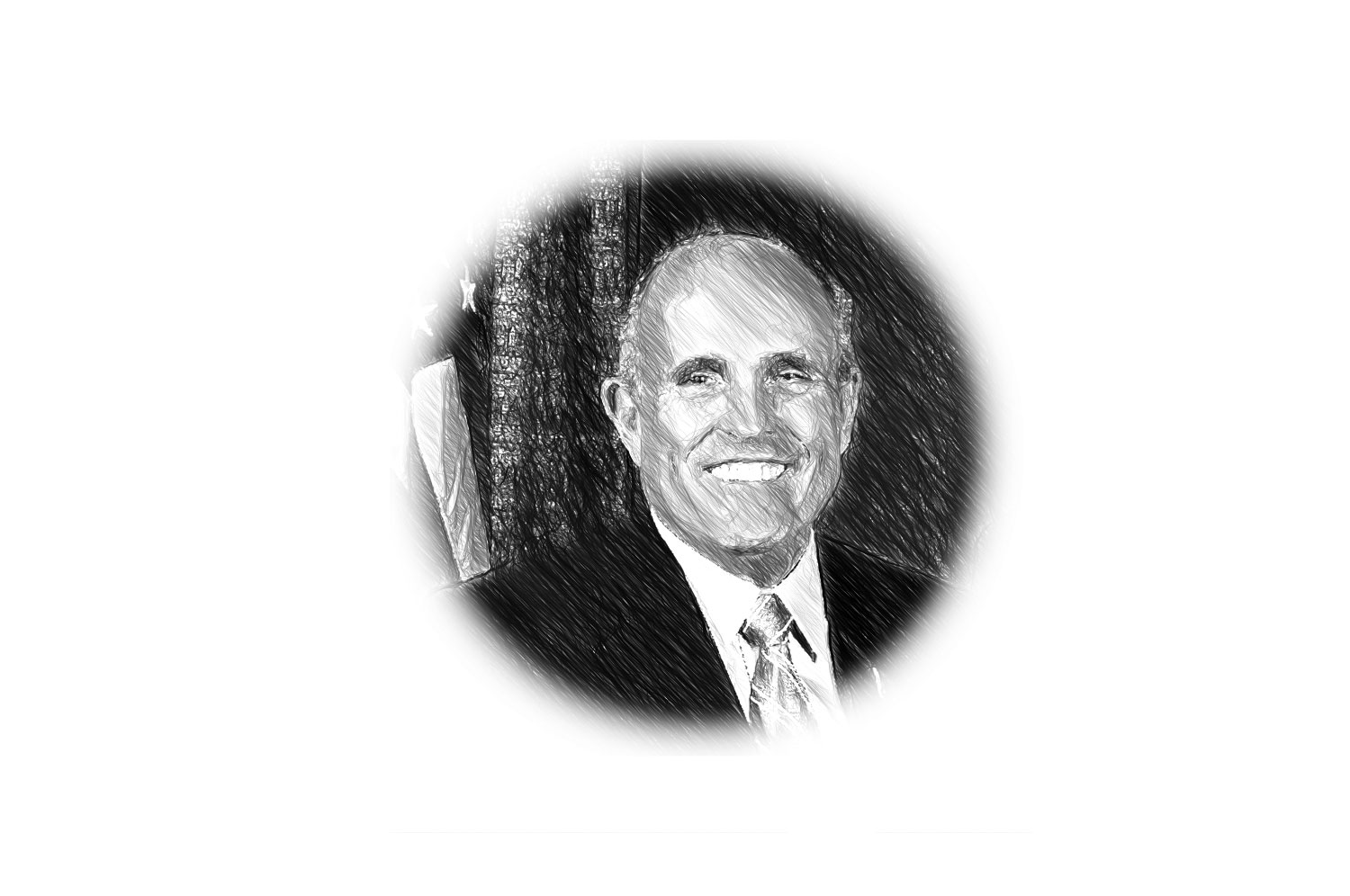Rudolph William Louis “Rudy” Giuliani is an American lawyer, businessman, former politician, and public speaker from New York. Politically a Democrat and then an Independent in the 1970s, but a Republican since the 1980s, Giuliani was the federal attorney for New York state’s southern region in the 1980s who prosecuted pivotal cases against the Italian Mafia and against corrupt corporate financiers. Giuliani reputedly tamed organized crime—most famously leading the case that sent boss John Gotti, the “Teflon Don,” to prison for life based on testimony brokered in a deal with Sammy the Bull. That accomplishment, which won Giuliani a reputation for being tough on crime, helped to launch him into politics.
During his first term as Mayor of New York City, Giuliani hired a new police commissioner, William Bratton, who applied the broken windows theory of urban decay, which holds that minor disorders and violations create a permissive atmosphere that leads to further and more serious crimes that can threaten the safety of a city.
In the Mafia Commission Trial (February 25, 1985 – November 19, 1986), Giuliani indicted eleven organized crime figures, including the heads of New York’s so-called “Five Families“, under the Racketeer Influenced and Corrupt Organizations Act (RICO) on charges including extortion, labor racketeering, and murder for hire. Time magazine called this “Case of Cases” possibly “the most significant assault on the infrastructure of organized crime since the high command of the Chicago Mafia was swept away in 1943”, and quoted Giuliani’s stated intention: “Our approach is to wipe out the five families.”
Giuliani served as mayor of New York City from 1994 through 2001. In Giuliani’s first term as mayor, the New York City Police Department at the instigation of Commissioner Bill Bratton adopted an aggressive enforcement/deterrent strategy based on James Q. Wilson‘s “Broken Windows” approach. This involved crackdowns on relatively minor offenses such as graffiti, turnstile jumping, cannabis possession, and aggressive panhandling by “squeegee men”, on the theory that this would send a message that order would be maintained. The legal underpinning for removing the “squeegee men” from the streets was developed under Giuliani’s predecessor, Mayor David Dinkins.
Bratton was featured on the cover of Time in 1996. Giuliani reportedly forced Bratton out after two years, in what was generally seen as a battle of two large egos in which Giuliani was not tolerant of Bratton’s celebrity. Bratton went on to become chief of the Los Angeles Police Department.
Giuliani supported protection for illegal immigrants. He continued a policy of preventing city employees from contacting the Immigration and Naturalization Service about immigration violations, on the grounds that illegal aliens should be able to take actions such as sending their children to school or reporting crimes to the police without fear of deportation.
During his mayoralty, gay and lesbian New Yorkers received domestic partnership rights. Giuliani induced the city’s Democratic-controlled New York City Council, which had avoided the issue for years, to pass legislation providing broad protection for same-sex partners. In 1998, he codified local law by granting all city employees equal benefits for their domestic partners.

